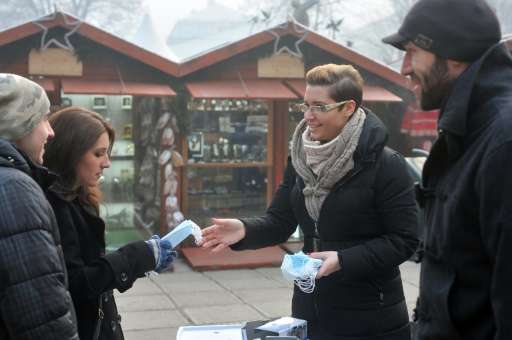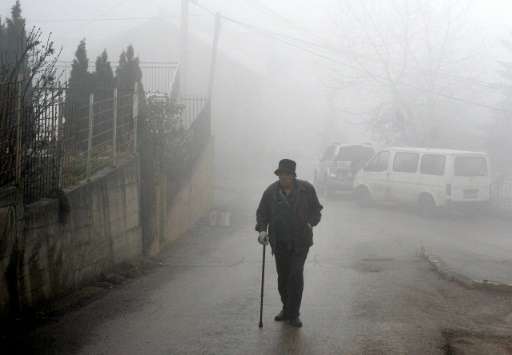Volunteers pass out breathing masks in the centre of Sarajevo on December 23, 2015 amid choking smog that forced authorities to close schools on December 24
Air pollution forced Bosnian authorities to shut schools in the capital Sarajevo on Thursday, while smog levels also spiked in other parts of the Balkan country due to a lack of rainfall, local officials said.
The air quality index, whose "normal" levels range from 0 to 50, reached 94 in Sarajevo on Thursday, official data showed.
Registered levels had been even higher in recent days, with the index soaring above the dangerous 300 mark and the city literally shrouded in a smog.
Regional authorities in Sarajevo decided to close primary and secondary schools Thursday, they said in a statement, while the city council demanded an early start to the winter holiday, so that children would be spared from being exposed to the smog.
Winter holidays traditionally start later in Bosnia than in western Europe, just ahead of the New Year.
Health authorities urged citizens meanwhile, particularly those with health problems, pregnant women and children, to refrain from going out at all.
Red Cross and non-governmental activists distributed protective masks to people across the city, which is surrounded by mountains that lock in the air especially during dry spells.
Pollution levels were also exacerbated by fumes from heating tens of thousands of homes.
Weather forecasts indicate that smog levels are not expected to improve before January.
Several other Bosnian towns were also hit by smog, especially those with large industrial areas such as Lukavac and Tuzla, where the air pollution index reached 293 and 193 respectively on Thursday.
Dense fog and smog-polluted air lowered visibility in the Bosnian capital city of Sarajevo to less than 20 metres on December 23, 2015, and authorities closed schools on December 24
© 2015 AFP

























